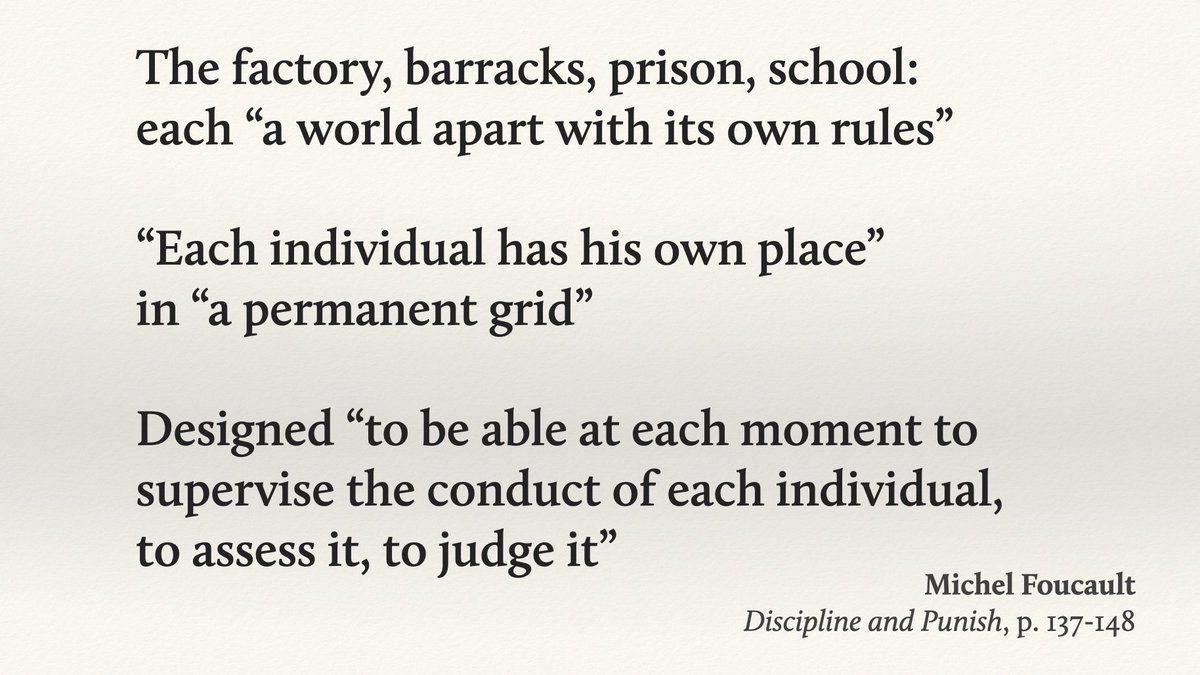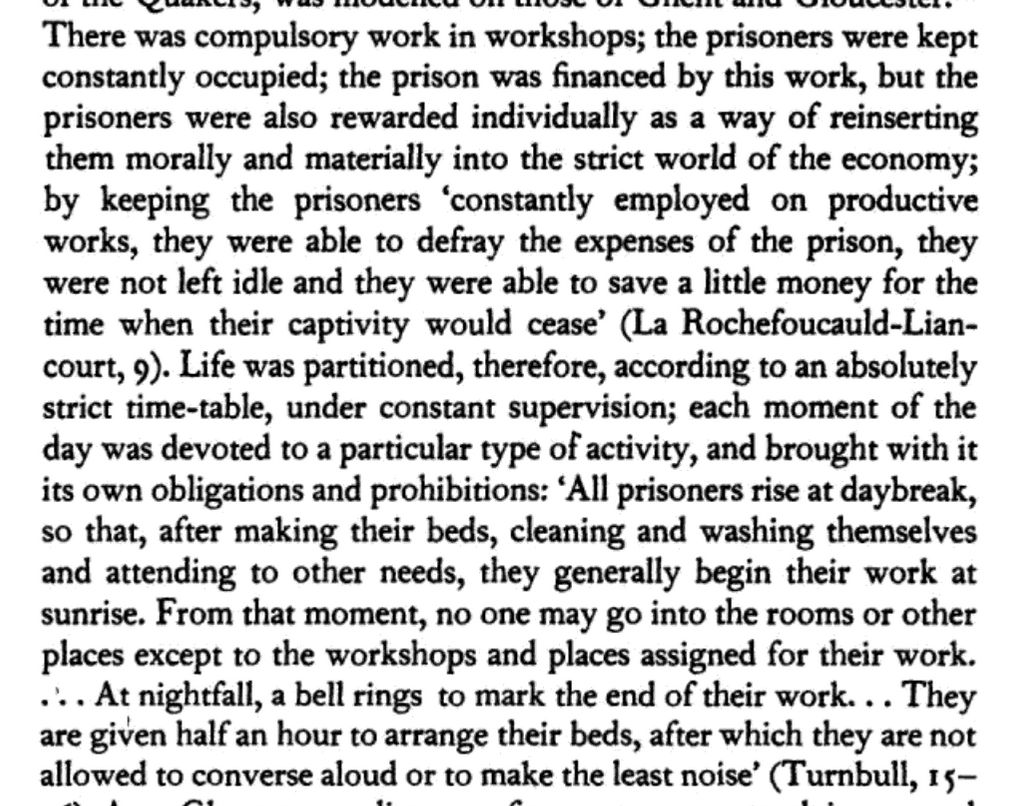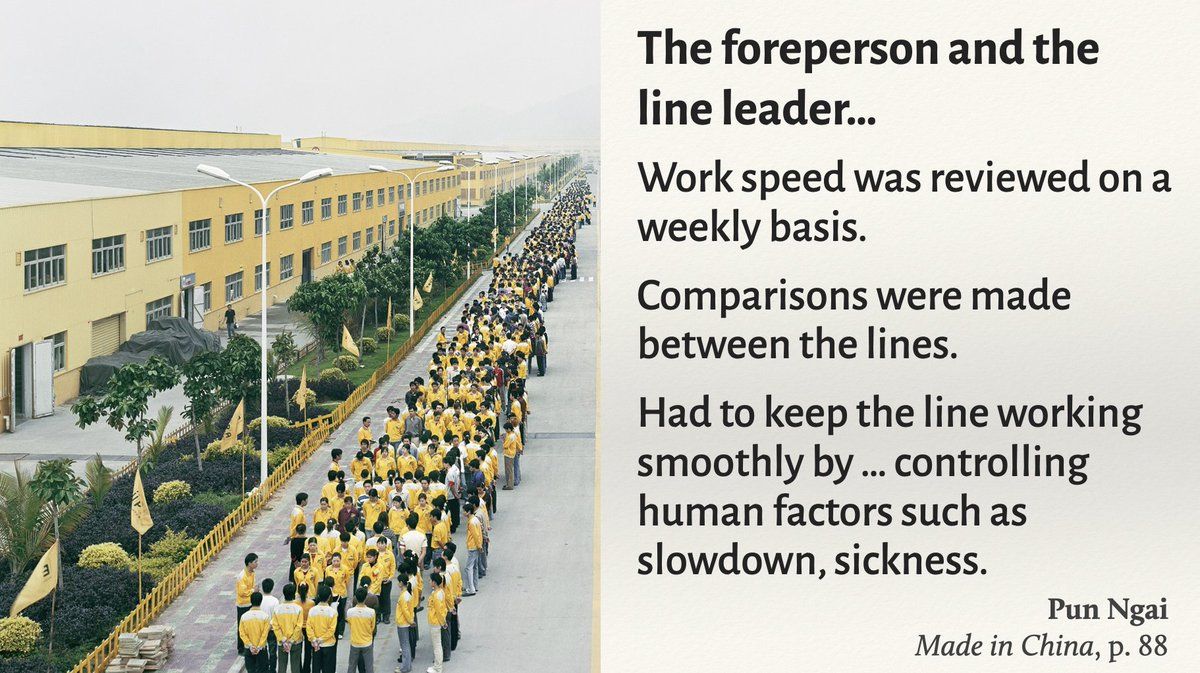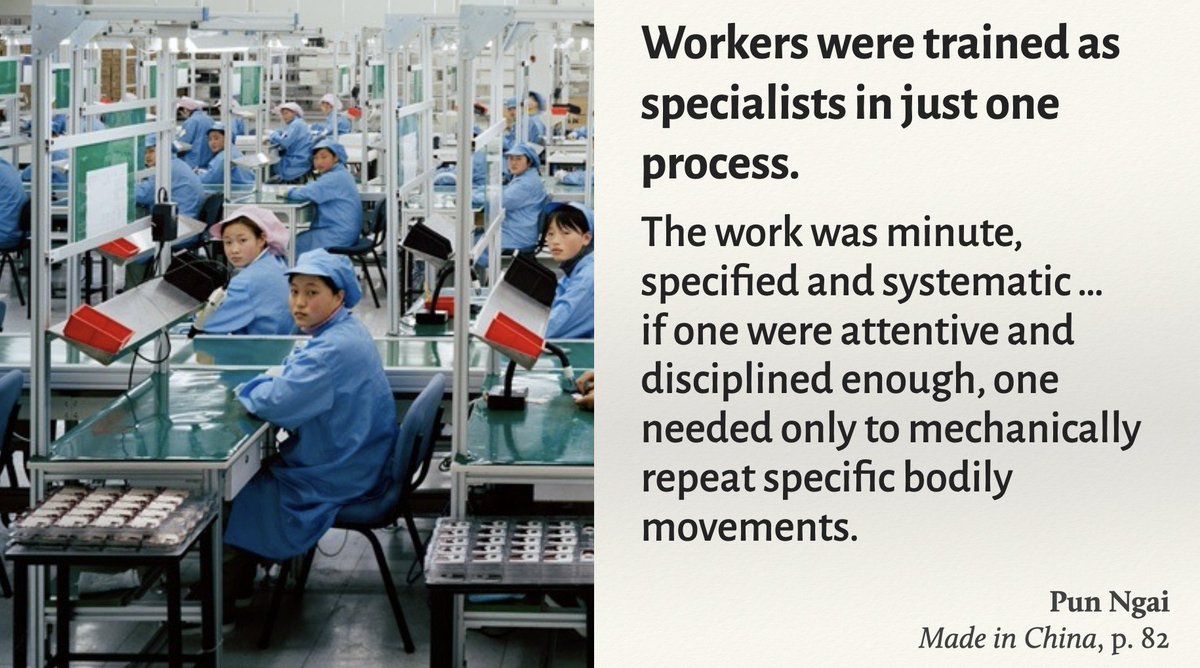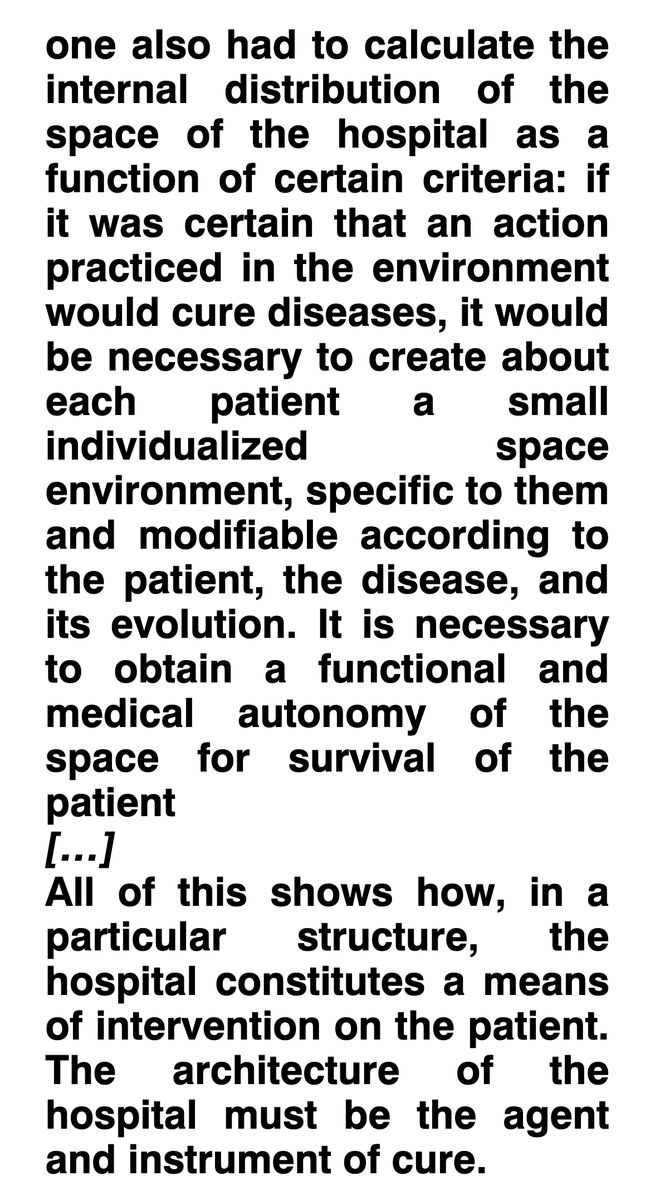-
@jeffryhouse It's a broad list, so there had better be some specifics to make the case. They are definitely architectural and schematic Here are some of them…
-
@jeffryhouse Now, Alford is right, contemporary prisons in the USA are nothing like this, but this was both the vision and practice of 19th century prison reformers.
-
@jeffryhouse And it's the system at work in factory production. (Quotes from Pun Ngai's ethnography of factory work, which explicitly uses Foucault as a theoretical frame.)
-
@jeffryhouse What's specific to the development of hospitals is laid out here… thefunambulist.net/editorials/foucault-episode-6-architecture-and-discipline-the-hospital
-
@jeffryhouse When I discuss all this with students, hospitals stick out as the places where they are sure that disciplinary society is in the service of unambiguous good.
-
@jeffryhouse And on the one hand, we're talking about features of social organization that may be morally neutral: organized repetition is necessary to train the firing of muskets, playing of the cello, and performance of surgery.
-
@jeffryhouse But we're also talking about systems of power. A hospital with powers of mandatory confinement may have very different impact depending on whether the "disease" is Ebola or homosexuality.
